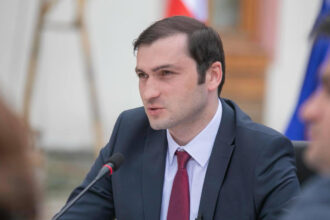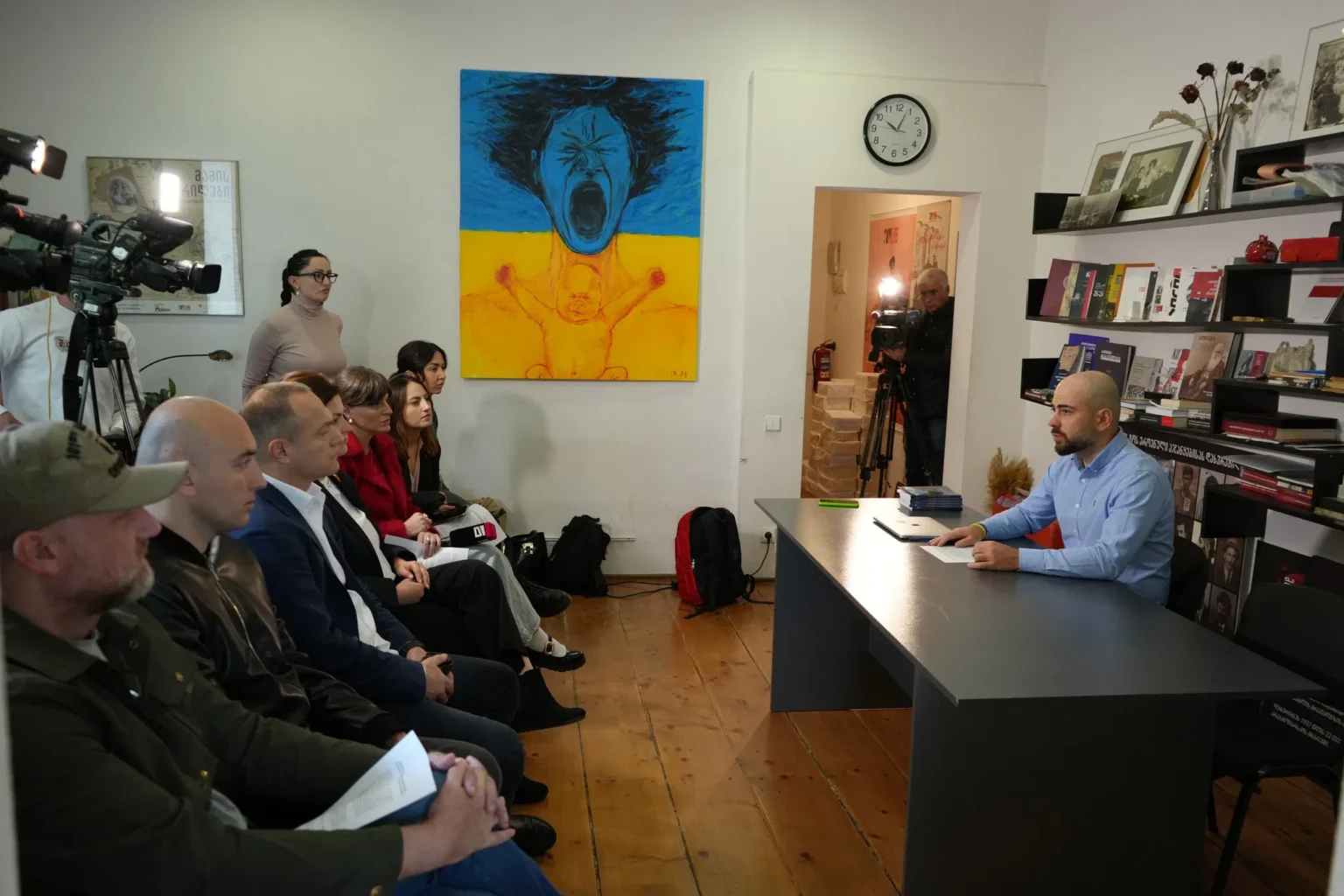On October 18, the Laboratory for the Research of the Soviet Past, (SovLab), organized and hosted a special event to celebrate the signing of the Memorandum by political parties “On the Establishment of the Institute of National Memory of Georgia After the 2024 Parliamentary Elections and on the Comprehensive Realization of the Right to Know the Past”. The Memorandum has been signed by three major political alliances – Coalition for Change (Coalition for Change), Unity and Strong Georgia.
The memorandum states that there has not been a full lustration or full disclosure of Soviet Archives, nor any other related measures, since Georgia’s restoration to independence. It also notes that “the Georgian Dream Government has introduced a series of draconian rules” in recent years to restrict access to Soviet era archives. This “has helped Russian disinformation use the Soviet past successfully as a propaganda tool.”
The memorandum notes a number post-totalitarian countries, such as Germany and Poland, the Czech Republic and Lithuania, Latvia and Estonia, have made significant advances in researching and rethinking Soviet communist totalitarian history, including through the creation of an effective institutional framework, in the form institutions of national memory.
The Memorandum provides for the creation of a Parliamentary Institute of National Memory, in collaboration with civil society and academics, and taking into consideration the experience of Poland, the Baltic states and Ukraine. The Institute will be set up to perform the following tasks.
1. The lustration should be done in accordance with the best international practices. The lustration is not a punishment, but a way to relieve citizens of pressure.
2. Lifting the restrictions placed in recent years to ensure the opening of archives from the Soviet era;
3. Protection, research, and memorialization sites of remembrance, including protection of mass graves, memorialization sites related to Soviet-Russian occupation in Georgia,
4. Education and research activities
On October 9, the European Parliament passed a resolution entitled “On democratic backsliding in Georgia and threats to its political pluralism” which noted the Georgian government’s continued restriction of access to public records, including archives from the Soviet era, “using false justifications based on the EU General Data Protection Regulation”. In the section of the resolution that deals with increased Russian influence in Georgia it states that “some of Georgia’s most important Soviet-era archive (including the archives of the Former KGB and the Central Committee of the Communist Party, which were closed without explanation since October 2023)”.
SovLab Employee Attacked
Badri Okujava was an employee and activist of SovLab who was walking through the center Tbilisi, near the SovLab offices, when he was ambushed, beaten and pelted with a paint.
Okujava said that he was attacked on the street by a group of men, who were then joined by others in a car. Okujava claimed that he had been beaten, particularly on his back. He also said that the individuals were Georgian Dream representatives.
Giorgi Kandelaki is one of the founders at SovLab and he links the incident with political motives. He said that Badri was an activist, and there is no doubt the incident had political motivations.
Also Read:
* 26/01/2024: Websites of Mtavari TV and SovLab, Formula TV and President’s website are allegedly under cyberattack.
* 20/01/2024: Speaker lashes out at Tolerance Center (SovLab), CSOs and USAID over Stalin’s image in church
* 17/01/2024: SovLab says the government hinders access to Soviet archives
The Daily Beat: September 30,
Conference in DC marks 100 years since Georgia’s anti-Soviet uprising of 1924
Georgia marks 103 years since Soviet Occupation of Georgia by Russia
The Daily Beat – 26 January
Cyberattacks on President, Mtavari TV and SovLab websites
Read More @ civil.ge













